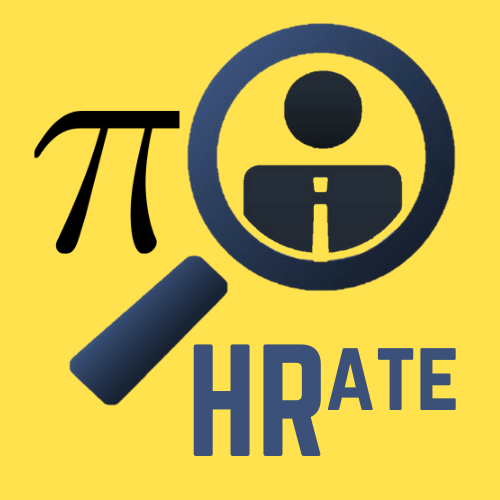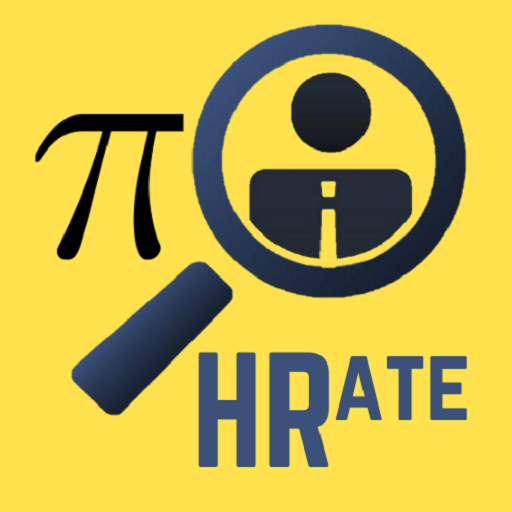Unlocking Tomorrow’s Talent: Navigating the Revolutionary Impact of Artificial Intelligence in Recruitment

In the dynamic world of recruitment, the integration of Artificial Intelligence (AI) has emerged as a powerful force, reshaping traditional practices and revolutionizing the way organizations identify, engage, and hire top talent. As technological advancements accelerate, the role of AI in recruitment has become increasingly prominent. Automated resume screening is a prime example of AI streamlining labor-intensive processes. By leveraging machine learning algorithms, recruiters can now efficiently analyze and rank resumes, saving valuable time and ensuring a more objective evaluation of candidates. This shift not only expedites the hiring process but also allows human recruiters to focus on strategic aspects, fostering a more effective and nuanced approach to talent acquisition.
The transformative impact of AI extends beyond mere efficiency gains, with predictive analytics emerging as a game-changer in the recruitment landscape. Through the analysis of vast datasets and historical hiring patterns, AI algorithms can predict the success of candidates in specific roles. Organizations are increasingly turning to predictive analytics to make informed decisions, aligning their hiring strategies with long-term workforce optimization. Real-world examples, such as Google’s People Analytics Team, highlight the potential of predictive analytics in decoding the attributes associated with successful hires, ultimately contributing to a more data-driven and strategic talent acquisition process.
However, as AI reshapes recruitment, it brings forth both benefits and challenges. While automated processes enhance efficiency, concerns surrounding bias in algorithms and potential dehumanization of the recruitment process necessitate careful consideration. The quest for diversity and inclusion is an ongoing challenge, and organizations like Amazon’s attempt to create gender-neutral AI recruiting tools underscore the complexities and ethical considerations associated with AI adoption. As we navigate this evolving landscape, responsible AI practices are crucial to ensuring fair, transparent, and inclusive recruitment processes. In the future of recruitment, the delicate balance between leveraging AI for efficiency and preserving the human touch will be key to navigating the multifaceted challenges and opportunities that lie ahead.
Automated Resume Screening: Enhancing Efficiency and Accuracy
Traditional resume screening is a time-consuming process prone to errors. AI steps in with automated resume screening, leveraging machine learning algorithms for swift and accurate analysis. This section will explore how companies such as IBM and Unilever have employed AI to streamline their hiring processes, reducing manual efforts and ensuring that no qualified candidate goes unnoticed.
IBM Watson Talent
IBM Watson Talent is at the forefront of revolutionizing resume screening. By harnessing the power of AI, IBM’s Watson analyzes resumes to identify patterns related to successful hires within a company. The system goes beyond keyword matching, considering contextual understanding and assessing a candidate’s potential cultural fit. This approach streamlines the initial screening process, allowing recruiters to focus on engaging with the most promising candidates.
Predictive Analytics: Decoding the DNA of Top Talent
Predictive analytics in candidate sourcing represents a paradigm shift, utilizing historical hiring data to identify patterns associated with successful hires. Real-world examples from companies like Google and Amazon will be examined to illustrate how predictive analytics not only enhances the quality of hires but also contributes to long-term workforce optimization.
Google’s People Analytics Team
Google’s People Analytics Team utilizes predictive analytics to decode the DNA of top talent. By analyzing vast datasets from past hires, Google identifies key attributes and patterns associated with successful employees. This data-driven approach enables the company to predict the likelihood of a candidate’s success in a particular role. Google’s emphasis on predictive analytics contributes to a more strategic and efficient talent acquisition process.
Personalization in Candidate Engagement: Tailoring the Recruitment Experience
AI-driven chatbots and natural language processing have introduced a new era of personalized candidate engagement. We’ll explore how companies like Deloitte and Microsoft have implemented chatbots to interact with candidates in real-time, offering insights into the recruitment process and improving overall candidate experiences.
Deloitte’s AI-Driven Chatbot
Deloitte has embraced AI to enhance candidate engagement. The company employs an AI-driven chatbot that engages with candidates throughout the recruitment process. The chatbot answers queries, provides information about the company culture, and even assists candidates in scheduling interviews. This personalized and real-time interaction ensures a positive candidate experience and reflects Deloitte’s commitment to leveraging technology for improved engagement.
Reducing Bias in Recruitment: A Step Towards Diversity and Inclusion
Addressing bias in recruitment processes is a critical aspect of ethical AI adoption. This section will investigate how AI, when implemented responsibly, can mitigate bias and contribute to fairer and more inclusive hiring practices. Real-world examples and case studies will shed light on the potential impact of AI in fostering diversity and inclusion.
Amazon’s Gender-Neutral AI Recruiting Tool
In an effort to reduce gender bias in its recruitment process, Amazon developed an AI recruiting tool that aimed to evaluate resumes in a gender-neutral manner. However, the tool faced criticism for reflecting biases present in historical hiring data. Despite the challenges, Amazon’s initiative underscores the industry’s commitment to addressing bias and promoting diversity through AI.
Challenges and Ethical Considerations: Navigating the AI Landscape
While AI brings forth transformative possibilities, it is not without challenges. This section will discuss concerns related to data privacy, algorithmic bias, and the ethical implications of AI in recruitment. Examples of organizations addressing these challenges head-on will be explored, emphasizing the importance of responsible AI adoption.
LinkedIn’s Responsible AI Practices
LinkedIn recognizes the ethical considerations in AI-driven recruitment. The platform actively invests in responsible AI practices, ensuring transparency and fairness in its algorithms. LinkedIn’s commitment to ethical AI adoption includes ongoing monitoring, regular audits, and continuous refinement of their algorithms to minimize biases and uphold high standards of privacy.
The Human Element: Balancing Technology with the Personal Touch
As we navigate the AI landscape, maintaining the human element in recruitment is crucial. We’ll examine how organizations strike a balance between leveraging AI for efficiency and preserving the personal touch in candidate interactions. Examples from companies like LinkedIn and Salesforce will showcase successful integration strategies.
Salesforce’s Human-Centric Approach
Salesforce strikes a balance between technology and the personal touch in recruitment. While leveraging AI for resume screening and analytics, Salesforce places a strong emphasis on the human element. Recruiters focus on building relationships, understanding candidate motivations, and ensuring a positive candidate experience. This approach highlights the successful integration of AI while preserving the human touch in the recruitment process.
The Future of Recruitment: Envisioning Trends and Innovations
This section will explore the evolving landscape of recruitment, envisioning upcoming trends and innovations in AI adoption. From virtual reality assessments to neuro-linguistic programming, we’ll examine how cutting-edge technologies are poised to shape the future of talent acquisition.
Virtual Reality Assessments by PwC
PricewaterhouseCoopers (PwC) is exploring the use of virtual reality (VR) assessments in its recruitment process. VR assessments provide a simulated environment where candidates can showcase their skills and problem-solving abilities. This innovative approach is poised to revolutionize how organizations evaluate candidates, offering a glimpse into the potential future of immersive and advanced recruitment technologies.
Conclusion
The integration of AI in recruitment represents more than just a passing trend; it signifies a transformative shift that requires strategic contemplation. As organizations increasingly tap into the power of AI, they are realizing its potential to streamline processes, enhance predictive capabilities, and elevate overall candidate experiences. This transformation calls for a deliberate and thoughtful approach to ensure that the adoption of technology aligns with ethical considerations. Striking a balance between leveraging the efficiency of AI and maintaining fairness and inclusivity in recruitment practices is vital. It involves navigating the evolving landscape with a keen awareness of the ethical implications, fostering a recruitment environment that is not only advanced but also prioritizes equity and diversity.
In this dynamic era of technological advancement, the harmonious integration of AI requires a holistic perspective. Streamlined processes must coexist with a commitment to ethical practices to guarantee a recruitment landscape that stands on the forefront of innovation while upholding principles of fairness and inclusiveness. As organizations navigate this transformative shift, they are not only shaping the future of recruitment but also influencing the broader narrative of how technology intersects with human-centric values in the workplace.
How does AI impact the recruitment process?
AI impacts recruitment by automating tasks such as resume screening, enhancing predictive analytics for better hiring decisions, personalizing candidate engagement through chatbots, and reducing bias in the recruitment process.
How does AI impact the recruitment process?
While AI streamlines processes, it cannot replace the human touch in recruitment. Human involvement is essential for strategic decision-making, relationship-building, and addressing complex situations that require emotional intelligence.
What are the potential ethical challenges associated with AI in recruitment?
Ethical challenges include concerns about data privacy, algorithmic bias, and the potential dehumanization of the recruitment process. Responsible AI adoption involves addressing these challenges and ensuring fair and transparent practices.
How can organizations balance the use of AI with maintaining a personalized recruitment experience?
Balancing AI with a personalized recruitment experience involves strategic integration. Organizations can use AI for efficiency in processes while ensuring that human interactions, empathy, and personalized engagement remain integral to the overall candidate experience.
What are the future trends in AI-driven recruitment?
Future trends include the incorporation of virtual reality assessments, the integration of neuro-linguistic programming for advanced candidate profiling, and the continued evolution of AI technologies for more sophisticated talent acquisition strategies.



